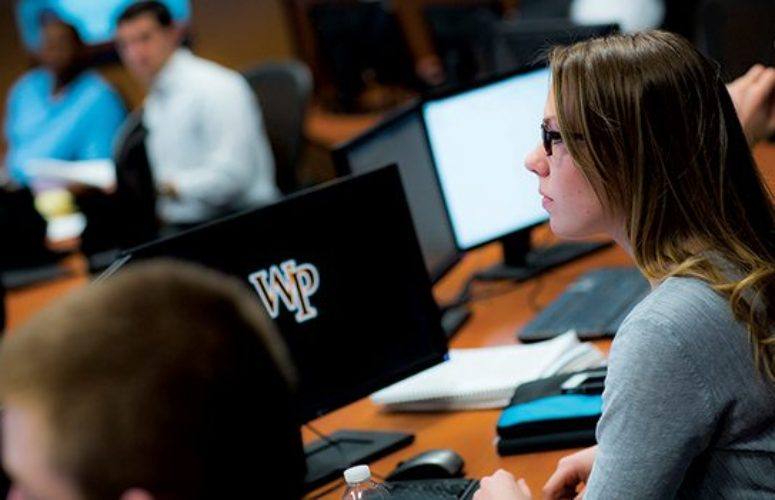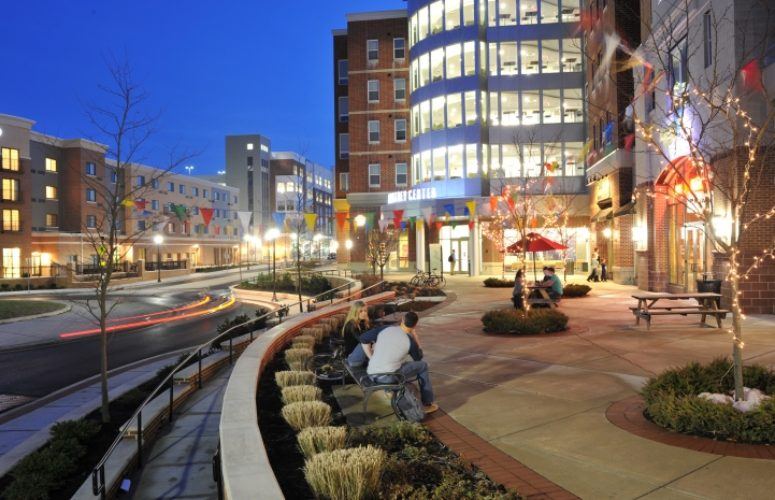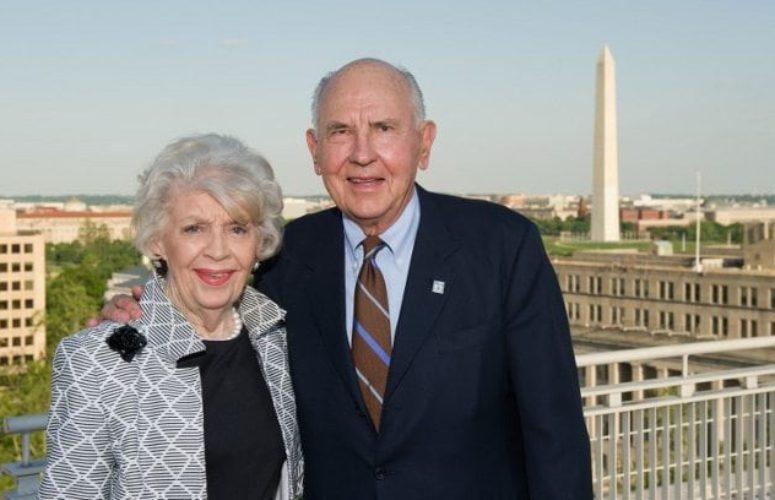
MBA Programs Thrive as Job Competition Rises
A healthy demand for graduates is fueling the equation.
By Ann R. Brice, Contributing Writer On Apr 4, 2016Employment prospects for business school graduates are excellent, which is why so many working adults in New Jersey attend evening and weekend classes despite family responsibilities. Three out of four large-sized employers plan to hire MBA graduates in 2016 – and the majority will hire as many or more than last year.
Further, employers will plan to increase annual starting salaries for MBA hires at or above the rate of inflation, says the same survey of 159 companies conducted by the Graduate Management Admission Council (GMAC), a non-profit that markets the widely-used GMAT test for business school admission. Sixty-one of those surveyed are Fortune 100 companies.
Universities in northern New Jersey and in close proximity to New York City, both large centers of commerce and industry, have responded to the demands of business for qualified employees. Today, most MBA students are working adults seeking to advance their careers, while a smaller number are recent graduates seeking an MBA to jumpstart their careers.
“In this complex and ever-changing business world, a cutting-edge MBA degree prepares students to meet the managerial and leadership challenges of the 21st century,” says Siamack Shojai, dean of William Paterson University’s Cotsakos College of Business in Wayne.
The demand for recent graduates of master-level business programs is particularly healthy for masters of business administration (MBAs), which have a broad range of content. The highly specialized masters of science (MS) in accounting, management or finance is geared toward a particular profession, such as certified public accountant (CPA).
MBAs are general in content, but have options for concentration in areas such as finance, international business, real estate and entrepreneurship. Newer options are healthcare (including pharmaceuticals), sport or music management, supply chain management and data analytics.
Social media is a huge part of data analytics, including Facebook, LinkedIn and Twitter. Marketers are collecting data about one’s preferences all the time and using it to tailor their marketing.
For this reason, “graduates these days need to be able to analyze data and crunch the numbers,” comments New Jersey City University’s business school interim dean Bernard McSherry, referring to the impact on curriculum.
As to further impact, Dean Don Moliver, of Momouth University’s Leon Hess Business School, notes, “We incorporate digital marketing, which encompasses much of social media, into marketing courses like advertising, market research and consumer behavior.”
At the Stillman School of Business at Seton Hall University, studies such as reputation management came about “as a result of the pervasive nature of social media,” adds Dean Joyce Strawser.
Other 2016 Trends
Not only course content, but also modes of delivery are being impacted by computers and the Internet. Business schools offer courses in online and hybrid, as well as traditional formats. In hybrid, or blended, students might attend class every other week as opposed to every week, with online assignments in between.
Louis Ruvolo, director of graduate business programs at Saint Peter’s University, says that 25 to 30 percent of its courses are available in online or hybrid format. Some business schools have more.
“The hybrid formats work well for busy professionals who are traveling and juggling extras, but they require a certain level of discipline,” comments Ruvolo. “It’s easy for human beings to procrastinate.”
The content of class material and the instructor help determine the format, Ruvolo explains. A subject like business ethics “would be enormously challenging to do online where the need exists to work collaboratively with peers.” At the other extreme, “e-commerce, which is all about the online presence of businesses, is offered only online.”
Monmouth University’s Leon Hess Business School finds that students like online and hybrid classes because of the flexibility and efficiency they allow. “But it shouldn’t be a substitute for quality, only a change in the form of delivery,” cautions Dean Moliver.
“Yet, students all learn in different ways,” notes Michael Williams, dean of the School of Business and Management at Thomas Edison State University. This is illustrated at Thomas Edison where online is the only delivery mode that is offered and has been for decades.
Thomas Edison has a private learning network. Students use e-books, or hard copy, to complete lessons composed of units or modules that can be accessed 24/7. On a particular day, students may be required to watch a video, for example. The instructor posts discussion questions, and students use written postings to respond.
Audio engagement is also possible. In Thomas Edison’s MBA programs, all courses have certain times when everyone comes online at once, which ranges from once weekly to once per term.
“The students meet together in person only once – at graduation,” according to Michael Williams, dean of the School of Business and Management.
Networking Is Key
Some believe that the value of an MBA is proportional to the opportunities to form relationships with faculty, other students, alumni and guest speakers, which is where exclusively online classes fall short.
“For working professionals, the focus is on: Whom should we meet? And how do we meet them?” comments James Almeida, associate dean of Fairleigh Dickinson University’s Silberman College of Business. “Being able to network with alumni on campus and the distinguished speakers we invite is an attractive feature we offer.”
Almeida recounts how a visiting former CEO of Verizon Wireless, an alumnus, inspired students with his anecdote about how the idea for Verizon’s retail stores grew out of an MBA project he did in Silberman’s Executive MBA program.
Similarly, Seton Hall’s Stillman School of Business believes that an important benefit it offers is that 70 percent of its alumni live within commuting distance, which presents opportunities for networking. Alumni participate in programs, serve as assessors for student presentations and act as mentors to students.
Tuition, Salaries and the Bottom Line
Sources say that many recent business school graduates plan to continue working for their current employer, but expect significant job benefits to result mainly in the form of greater responsibilities, promotions and salary increases.
Many corporations still have some level of tuition reimbursement. At Centenary College, a large majority of students’ tuition is reimbursed by employers, says Deirdre Letson, dean of its School of Professional Studies.
However, a slight shift in attitude can be seen in companies. Many require some level of quid pro quo, which means that employees should not expect to leave the company immediately after receiving their degrees, notes Saint Peter’s director Ruvolo.
Some MBA students at each school – but not nearly enough – are fortunate to receive scholarships, grants or assistantships, while others use family funds or pay out of pocket.
Overall, public universities charge lower tuition than private schools, but even their rates vary. Thomas Edison claims that its tuition is the same or less than other public universities; and NJCU says that it has the lowest level of tuition and fees of all New Jersey’s public universities.
Regarding private business schools, Monmouth claims that it is one of the “more affordable” ones, but it was not specific.
Saint Peter’s – also private – quantifies tuition rates based on a cost per credit of about $1,000. The MBA requires 48 credits; and the MS, 30 credits, “so the degree is a $30,000 to $40,000 investment,” director Ruvolo explains.
The cost of an MBA has been increasing some 3 to 4 percent each year, according to the GMAC’s research. One dean notes that some MBA programs have reduced the number of credits required, so that total costs may have remained steady in some cases.
Regarding return on investment, “earnings potential for folks with master’s degrees is higher across the board,” says Bernard McSherry, interim dean at NJCU’s School of Business.
In 2015, the expected medium starting salary for recent graduates was $100,000, a number put forward by GMAC that the deans did not dispute. More specifically, graduates can expect to command a $45,000 pay premium over new degree hires.
Distinctive Qualities of New Jersey’s Business Schools
Crain’s NY Business listed the following New Jersey business schools as among the largest 25 business schools in the greater New York area in 2015: Fairleigh Dickinson’s Silberman College of Business, Saint Peter’s School of Business, and Seton Hall’s Stillman School of Business.
They have much in common in responding to the need for experiential learning, dealing with actual business problems at real companies. However, they have many distinctive features that create individual appeal for prospective students.
Farleigh Dickinson, New Jersey’s largest private university, has MBA programs at its Florham campus in Madison/Florham Park and at its Metropolitan campus in Teaneck/Hackensack. Some 500 graduate students attend its Silberman College of Business, known for its global focus.
The Florham campus gets working professionals from companies within a 15-mile radius who attend weeknights and Saturdays, notes associate dean Almeida, whereas the Metropolitan campus gets more full-time students, both domestic and international. Silberman’s gender ratio is 60:40, male to female.
Silberman is included in The Princeton Review’s 2016 edition of the book, The Best 295 Business Schools.
What makes the business school distinctive at Saint Peter’s University in Jersey City is “the Jesuit commitment of cura personalis, which relates to the personal care and concern for each student. This means that students get a level of personal attention that many institutions, especially large ones, don’t even think about,” notes director Ruvolo.
Most of the 350 students in the School of Business work full time and attend classes evenings and Saturdays. The classes are accessible to public transportation, including the New Jersey PATH. Some are taught at corporate satellites such as Horizon Blue Cross Blue Shield of New Jersey in Newark and Pershing (BNY Mellon) in downtown Jersey City.
Ruvolo describes the program’s demographics as “extraordinarily diverse,” citing a student population that is approximately 72 percent minority and 56 percent female. The average student age is about 35, but ranges from the early 20s to mid-to-late 50s.
Seton Hall, a Catholic university in South Orange, is in close range of numerous northern New Jersey companies and only 14 minutes by transit train to New York City. The mission of the Stillman School of Business is to provide “an ethics-centered education focusing on transforming concepts into business practice,” says Stillman’s Dean Strawser.
Currently, 168 MBA students are registered and the majority work full time. Their average age is 29, with some seven years of work experience. Typically, the ratio of men to women is 2:1. Fifteen percent are international students.
Stillman is included in The Princeton Review’s 2016 edition of the book, The Best 295 Business Schools and also in U.S. News & World Reports’ list of “Top Business School for Part-Time MBAs.”
In northwestern New Jersey, the more than century-old Centenary College, an independent institution in Hackettstown, has some 268 students in its MBA program.
The majority is women who take classes on weekday evenings and come from diverse industries that include pharmaceutical, financial, consumer products, technology and healthcare, says Dean Letson of the School of Professional Studies in Parsippany.
Typical students have an average age of 39 years. “Their jobs are all across the board,” Letson adds, “with students ranging from directors of finance to directors of education training and vice presidents to support staff.”
“Some students look for the opportunity – if not in management or leadership positions now – to transition to them in the future.”
Monmouth University in West Long Branch is one mile from shore beaches and one hour from New York City and Philadelphia. MBA students hail mainly from Monmouth, Middlesex and Ocean counties. Currently, 51 percent of the 182 MBA students are women and 49 percent are men.
“Monmouth truly is what we call personalized education, everything from small classes to knowing your professor,” notes Dean Moliver. The Leon Hess School of Business is also included in The Princeton Review’s 2016 edition of the book, The Best 295 Business Schools.
In addition, “we try to spread scholarships, assistantships, loans and payment plans as widely as we can.” Programs can be customized to include electives involving internships, study abroad and research options.
NJCU’s School of Business began its 2015 fall classes in a new 68,348- square-foot space at Harborside Plaza 2 directly on the Jersey City waterfront. It is adjacent to the Exchange Place PATH station, with easy access to corporate employers in Jersey City and New York City.
McSherry, interim dean of the business school, sees graduate enrollment as already on the increase. “Over 12 million people a day pass through the Exchange Place PATH station adjacent to us. Many park their cars in garages across the street and take ferry lines to Manhattan.”
Close proximity to New Jersey’s financial capital, and to Wall Street, allows the business school to attract top business faculty which, in turn, gives students a competitive edge on experiential learning, McSherry says.
William Paterson University’s Cotsakos College of Business in Wayne has recently revised its MBA program to offer flexibility in curriculum, course scheduling and offerings to include a strong connection to industry, says Dean Shojai.
The program includes new “cutting-edge areas” such as music management, business analytics and data-mining, and leadership permeates all courses. The latest courses include innovation, strategy, corporate sustainability, persuasion and negotiation strategy.
Thomas Edison State University is geared toward self-directed adults and is entirely online. Business school Dean Williams refers to it as “one of the state’s best kept secrets.”
Located in Trenton, Thomas Edison is one of New Jersey’s 11 public universities and was recently authorized to change its name from Thomas Edison State College to University. Currently, the 109 students enrolled in its MBA program are working adults with an average age of 36.
Lasting Value
The business school deans express confidence that they are providing good value to their MBA students, who are, in turn, getting good returns on their investments. A few deans state as follows:
“The MBA still has cachet in the workplace. Over the long term, it increases earning capacity, job satisfaction and quality of life.” – Monmouth University’s Dean Moliver.
“I worked on Wall Street most of my life. For our students, it’s about getting jobs. We’re working to better their lives and their families’ lives.” – NJCU’s Interim Dean McSherry.
Related Articles:






